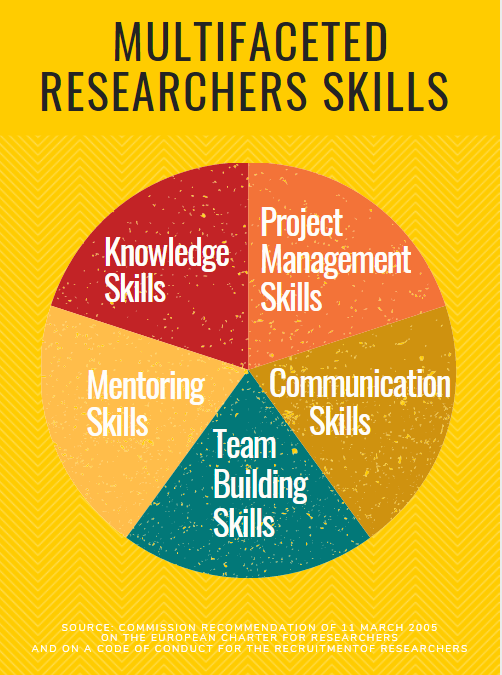The EU Principles for Innovative Doctoral Training and the European Charter for Researchers underline the multidimensional character of the researcher profession who is not only a knowledge worker but has a «multi-faceted role as knowledge workers, leaders, project coordinators, managers, supervisors, mentors, career advisors or science communicators» [the European Charter for Researchers and on a Code of Conduct for the Recruitment of Researchers, p. 5].
On this basis, research communication is defined as the process of interpreting or translating complex research findings into a language, format and context that non-experts can understand. [source: Research communication: Insights from practice Communication, Dissemination and Outreach]
«All researchers should ensure, in compliance with their contractual arrangements, that the research results are disseminated and exploited, e.g. communicated, transferred into other research settings or, if appropriate, commercialized. Senior researchers, in particular, are expected to take the lead in ensuring that research is fruitful and that results are either exploited commercially or made accessible to the public (or both) whenever the opportunity arises» [European Charter for Researchers, p. 13-14].
«Researchers should ensure that their research activities are made known to society at large in such a way that they can be understood by non-specialists, thereby improving the public’s understanding of science. Direct engagement with the public will help researchers to better understand public interest in priorities for science and technology and also the public’s concerns».
In this context, the FoodStories project aims to provide food scientists, researchers and university students with knowledge and tools to learn how to communicate their science better to peers and to the general public using narratives.
The project is funded by the European Union Erasmus+ programme and implemented by EUFIC (lead partner), the University of Aarhus, the University College Dublin, Loba and i-strategies.

